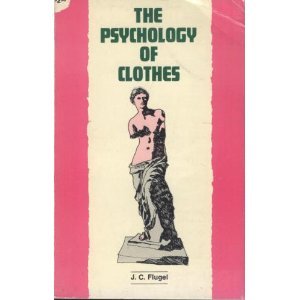This week’s letter from Thomson’s collection comes courtesy of psychologist and psychoanalyst, John Carl Flügel (1884–1955):
The letter was one of many sent from eminent psychologists, mathematicians, scientists, and former students to Lady Thomson following Thomson’s death in 1955. Flügel’s rather amusing anecdote, where he recounts a conference in Sweden Thomson chaired and describes how Thomson threatened to ‘chop off the heads’ of anyone who spoke over their allotted time, is true to character! This was, in fact, a pet hate of Thomson’s, well known to his students and colleagues.
Lady Thomson’s annotations on the reverse of the letter are also important. They refer to a documented account of the seminar, though sadly the cutting is long gone, and endorse Flügel’s account, stressing it was the ‘correct description of Godfrey’s manner’. Her annotations can be found throughout the collection, and were most likely for her projected biography of Thomson (which she never undertook due to ill health) or to aid James Fitzjames Duff in his introduction to Thomson’s posthumously published autobiography, Education of an Englishman.
Like Thomson, Flügel was a psychologist. He was born three years after Thomson, and died a few short months after sending this letter. However, the course of his career and study was very different to Thomson’s. While Flügel was an experimental psychologist, first and foremost he was a practising psychoanalyst. He is credited as one of the few psychoanalysts who successfully bridged both academic psychology and psychoanalysis. His publications included The Psychology of Clothes (1940); Man, Morals and Society: a Psychoanalytical Study (1945); and the neo-Malthusian Population, Psychology and Peace (1947).
Flügel spent most of his working life in the psychological laboratory of University College London, starting off as psychologist Charles Spearman’s assistant, then progressing to senior lecturer (1920) and assistant professor (1929). Following his retirement in 1944, he was appointed special lecturer. Throughout this time, he managed to balance lecturing on psychoanalysis alongside working with Spearman, thus utilising both an emotional and cognitive approach to understanding the human mind. As his obituarist, Roger W Russell, argues:
During the six years I knew him personally, he occasionally discussed the conflicts which these two roles had produced, for he believed that such conflicts could not be resolved by accepting one role and abandoning the other. He felt strongly that the two approaches were working towards similar, general goals, toward a better understanding of human relations, and he did all he could to encourage each to proceed as far and as rapidly as possible.
The American Journal of Psychology, vol. 69, no. 2
The letter hints at a close relationship between Thomson and Flügel – and indeed, they shared many correspondents and acquaintances including Spearman (with whom Thomson had a 30 year professional feud!) and Cyril Burt. Flugel rather eloquently comforts Lady Thomson:
We were so fond of you both, and we felt we had suddenly lost a friend whom we both loved and admired…at such moments, little poignant memories keep creeping in…all of them rousing tender and nostalgic feelings. Our hearts go out to you who have to bear the chief burden of his loss, but we are only too aware of the many who must be mourning with you today and perhaps the thought that your sorrow is so deeply and so widely shared may help in some measure to ease the sad and heavy burden.
The most touching aspect of the letter for me, however, was not Flügel’s kind words, but the letter’s tone. He refers also to the death of his friend, Mollie Rees, ‘another charming person who, alas, has left us’, and the reader is left with his general feeling of acceptance that both he and Thomson’s generation is coming to an end.
Personal archives from any period of change are significant. Thomson’s collection is a case in point, covering eugenics, intelligence testing, and social mobility. They help in our understanding of these ‘big’ themes through the professional and personal relationships represented. At the risk of sounding twee, they allow us to explore what it means to be human at any given time, and give us ‘a better understanding of human relations’. This is perhaps their greatest value.



